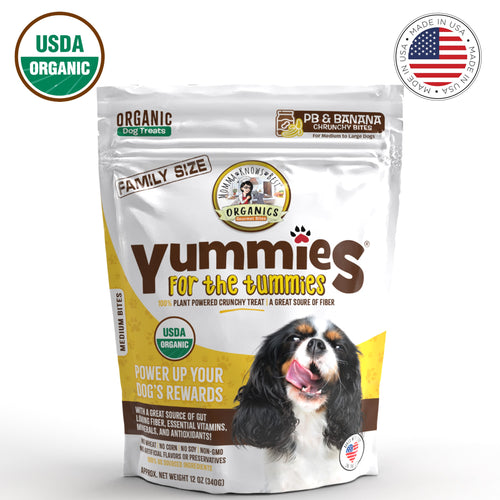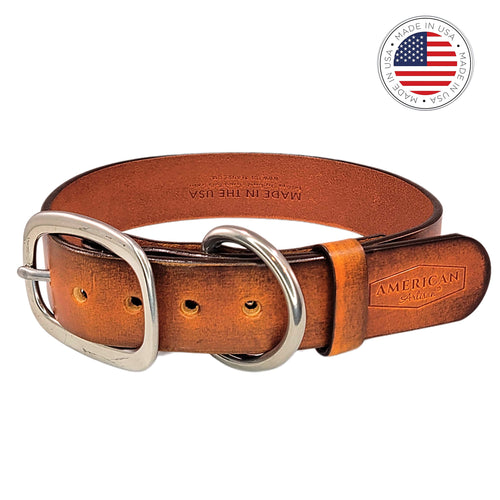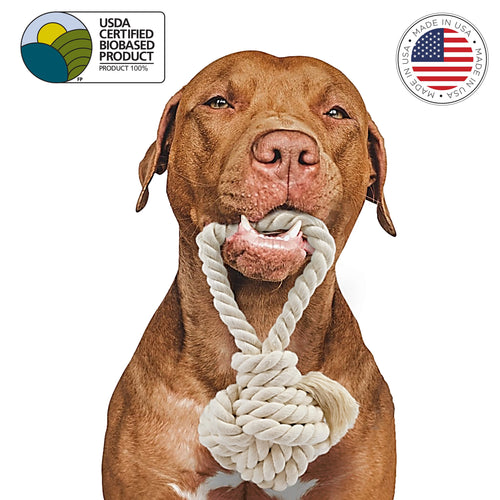Your Cart is Empty
Free 2-5 day delivery | No minimum purchase required
Free 2-5 day delivery | No minimum purchase required
Shop
Learn
The 8 Best Fruits for Dogs You Should Know About
 by K Marie Alto Updated
10 min read
by K Marie Alto Updated
10 min read

Where our furry feline friends are obligate carnivores, dogs are omnivores and can enjoy more than just meat. Giving them fruit can be a healthy, tasty snack, and depending on how much your pooch loves it, a high-value treat that can be very useful for training.
Which fruits are the best, and are there any fruits you should avoid? Let's dig right in!
Table of Contents
#1: Apples
Apples are readily available all throughout the year and come in dozens of different varieties, which can be sweet, tart, and everything in between. They're rich in vitamin A and vitamin C, both of which are important for a healthy canine, and the dietary fiber they provide can help ensure clean bowel movements and minimal mess to clean up on those walks.

One important note about apples is that you should always slice them and keep the core away from your pooch. The core, which contains the seeds of the apple, is both tough and less pleasant to eat, and the seeds have cyanide in them.
While it's not enough cyanide for us humans to really worry about if we accidentally eat a seed or two, our dogs are much smaller and more vulnerable to those kinds of toxins.
Apples are also fairly firm, so cutting them into smaller bits helps reduce the risk of choking. That's going to be true of any firm fruit, so keep it in mind as you go.
#2: Blueberries
Blueberries are one of the healthiest fruits around for both people and puppies. They're super rich in antioxidants, vitamins, and minerals, and they're very tasty to boot.
As an added bonus, they're already bite-sized for dogs, so they're easy to just use as small treats or to hand over a handful after a good day of training.

Different people give blueberries differently, and it can also depend on the size of your dog. Small breeds might find berries to be a bit of a choking hazard, especially if they don't chew them properly, so you might consider mashing up the berries first.
You could also partially freeze them so they're more solid to chew on, which can be helpful if you want to put them in an engaging puzzle feeder.
One thing to keep in mind about blueberries is the pigment in their skin can stain, so don't give your dog blueberries when they're in the room with the white carpet. That same pigment can tint their poo later, too, so don't be too concerned if it looks a lot darker than normal after a handful of berries.
#3: Pears
Pears are a safe, tasty, and relatively inoffensive fruit you can give to your dog. Pear juice is used in tons of beverages because it's essentially a neutral flavor that just adds sweetness without adding too much sugar, and the same goes for using it as a dog treat.

Your dog will enjoy it, of course, and it's full of vitamins like vitamin C and vitamin K, which are important for a healthy doggo. As with most fruits, though, you want to make sure to remove the seeds and core before handing it over.
#4: Strawberries
Strawberries are sweet, delicious, and healthy for most dogs. They have vitamins, antioxidants, and plenty of healthy components. More importantly, there are no toxic substances you have to worry about.
Your dog could even eat them with the hull still on if you want, though I find that prepping a bunch of berries and leaving off the hulls is easier.

Strawberries are just on the edge of having too much sugar, so keep that in mind and only feed them in moderation. Smaller dogs can also find them a choking hazard, so making sure they're soft and ripe, mashing them, or cutting them into smaller pieces can be a good idea.
#5: Watermelon
A staple of summer, watermelon is one of the best fruits you can feed to your pup on a hot day. The rind should be removed, of course – it's tough and indigestible, so it's not very pleasant for your doggo.
The seeds should also be removed if possible, but they aren't likely to cause a huge problem if you miss a couple. Seedless watermelons can also be a good option if you don't want to go through all of that hassle.

The biggest benefit of watermelon is just the first part of the name: water. Watermelon is 90% water, so it's great for hydration without overdoing it on the water bowl and risking an accident or other problem. It also has a lot of potassium and vitamins, so it's generally healthy. Cut it, trim it down, and let them enjoy it!
#6: Coconut
Coconut is an interesting fruit in many ways. Obviously, you can't just give one shell and all to your pooch, but if you break it open and scoop out some of the fruit inside, it can be a tasty treat.

This really only applies to fresh coconuts, though. You don't want to be giving your pup sweetened and shredded coconut, or even coconut flakes, for both digestive and sugar reasons. On the plus side, it's a fruit rich in healthy fats, which can be a key part of your pup's macronutrient profile.
#7: Pumpkin
Depending on your perspective, pumpkin might be considered more of a vegetable than a fruit, but it's on my list either way. Pumpkin can be very tasty, healthy, and good for your dog, but you have to make sure you're either using unsweetened, unadulterated pumpkin puree or baking your own pumpkin so it's soft and good for them. Obviously, a pie filling full of sugar and spices just won't do.

Pumpkin Is also a key ingredient in healthy dog treats, dog treat recipes you can make at home, and even mixed with chicken for a tasty food when your dog is feeling under the weather.
#8: Cranberries
Cranberries aren't just a staple of juices, Christmas recipes, and that sauce in a can that comes out as a cylinder; they're an incredible superfood. They're packed with so many vitamins and minerals I could write a whole post just on how good they are.

I recommend sticking with fresh cranberries rather than dried, though; dried cranberries often have added sugars or even xylitol, and that's no good.
Are There Fruits to Avoid Giving to Your Dog?
Not all fruits are great for your dog, but most of them are at least safe. Some can be toxic, and others harmful in other ways.
The poster child for fruits to keep away from your dog is grapes. Grapes contain compounds that can be extremely toxic to dogs, but it's a per-dog sensitivity. Some are fine; some go into shock very quickly. Keep them away to be on the safe side. Note that this includes raisins as well!
Avocados are another example. It contains a compound called persin that can be dangerous, and while the flesh of the avocado doesn't have a ton of it, it can still be enough to upset your dog's stomach. The high fat content can also cause problems.

Another fruit you might want to avoid is pineapple. Pineapple can be given to your dog in moderation, but it has a few problems. For one thing, it's very high in sugar, which is generally bad for most dogs, especially dogs with prediabetes or diabetes.
The pineapple skin is indigestible, so it can cause digestion issues and even bowel obstructions. There's also the enzyme in it! If you've ever eaten a bunch of pineapple, you know that funny feeling in your mouth? That's the pineapple enzyme breaking down your mouth skin. You don't want to do that to your pooch, right?
Another fruit you might consider avoiding is blackberries. They're full of antioxidants and healthy phytochemicals, but they also contain naturally occurring xylitol, which is toxic to dogs. Your dog would have to eat a lot of them (unless it's a very small breed) to be hurt by it, but it's still better to be safe, right?
Dog Fruit Snacks FAQ
Now, let's round things out with a couple of questions that I didn't have space to cover in the list above.
What other fruits are good for dogs?
Most fruits are at least safe for your dog to eat or are safe after you do a little preparation. For example, mangos are a tasty treat, but you can't just give them one whole. The pit can cause problems if you do, and the skin is hard for your furry friend to digest. Peel and core the mango and give them bites of it, and you're fine.

Other melons than watermelon – like cantaloupe and honeydew – are also good options, but they have the same caveats. No rind, no seeds, in moderation because of the sugars.
What fruits should you leave off the list?
There are a handful of fruits that are healthy and won't hurt your dog the way a toxic fruit might but are still less good for them than the other fruits on the list.
One big example is bananas. Bananas are full of potassium and other nutrients and can be perfectly fine treats for a dog, but they're also very sweet and full of sugar, which can cause problems, especially if your dog is diabetic. Oranges are also one that is often more trouble than it's worth. You want to leave off the peel and the seeds, at which point you have a mess on your hands.

Peaches aren't bad for your dog – as long as you don't feed them the stone – but they're also emblematic of a common mistake, which is using canned rather than fresh peaches. Canned peaches have tons more sugar and are much worse for your dog. The same goes for any canned fruit, really.
Grapefruit is another fruit you should consider leaving off the list. It's annoying like oranges, but it's more acidic, which can upset your poor puppy's stomach. There are also compounds in grapefruit that can interfere with medications – it's more of a problem for people, but you don't want it to cause problems in a senior dog, right?
Is it a good idea to give dogs fruit as a treat?
Many fruits can be good treats. They're tasty, they're usually fairly healthy, and they serve to break up the usual routine of kibble and treats like cheese or sausage.

Even so, they should be considered a "sometimes food" because of their sugar content, and you still have to avoid the ones that can be bad for your pooch.
Do dogs need fruit to be healthy?
Nope!
As people, we're used to a balanced diet from the food pyramid, and the recommendation to get however many servings of fruit and veg each day. Dogs are omnivores just like us, so they can eat most of the same things, but they don't need to.

The biggest reason why is actually their existing food. Dog foods are specially formulated to contain all of the macro and micro-nutrients your dog will need to stay healthy. They don't need added fruits, vegetables, or anything else to stay healthy.
Why can we make a nutritionally-complete kibble for dogs but not for people? Dogs have much less complex dietary needs, for one thing. Human nutrition is immensely complicated, especially since we need to get it right, or we start to develop neurological problems.
We also live a lot longer, so there's a lot more time for problems to develop. Dogs might have problems subsisting just on kibble if they lived to be 60 as well, but they don't have that kind of lifespan.
How much fruit can my dog have?
Not much! In general, treats should make up 10% or less of your dog's diet. Fruit should be considered a treat, not a staple, for this purpose. So, try to avoid giving them too much fruit!

If your dog is eating too much fruit on a regular basis, they'll generally start to develop signs of an upset stomach. You don't want to make your fur baby sick, right?
So, there you have it: a good rundown of what fruits are good for dogs in moderation and which ones you might want to avoid. If you have a specific question about a fruit I haven't listed, feel free to drop me a line!
The Healthiest Choice for Your Dog and the Planet
As a loving dog parent, you are always pursuing the very best for your pup. We’re here to help you provide that. Our commitment to non-toxic, organic, and sustainable products ensures that your dog stays happy and healthy while also caring for the environment.
Start with our mouth-watering USA-made USDA organic dog treats, made with wholesome ingredients like organic pumpkin and peanut butter—all free from synthetic preservatives and harmful chemicals.
Shop with confidence knowing that our dog treats are free from ingredients coming from overseas oftentimes disguised under ingredient groups such as “globally sourced” ingredients. Pair these with our USDA organic dry dog shampoo, for a gentle, toxin-free grooming experience. Keep your dog’s coat looking its best with our dog brushes, made with FSC certified wood and natural bristles. Did you know natural bristle brushes are proven to work best both for your dog and for humans?
For playtime, explore our non-toxic dog toys collection, featuring toys made from certified materials that ensure endless fun without any worries. And don’t forget our fine Spanish leather dog accessories, 100% made in the USA.
Every product we offer is proudly designed and manufactured in-house or in partnership with small-batch artisans in the USA, ensuring unmatched quality and the highest levels of supply chain visibility. Unlike most online retailers, we maintain strict control over our supply chains to ensure ethical practices, sustainability, and the highest quality for your pup.
Take the next step in providing the cleanest care you can offer your dog. Shop our dog supplies today!
K Marie Alto
K. Marie is an animal lover, wife, kitty mom, dog auntie, writer, and co-founder of Toe Beans, a proud American family-owned online boutique pet supplies store focused on the improvement of the life of furry family members via pet parent education, better products, and advocacy. She has over 20 years of experience as a pet momma. She loves sharing her personal journey and experience as a pet parent via her blog and Facebook page where she currently has more than 50K followers (@furrytoebeans) and counting :-). Read more
Leave a comment
Comments will be approved before showing up.
Also in Pet Parents Blog by Toe Beans

Why Do Cats Hide? The Top 4 Causes Explained
by K Marie Alto May 08, 2025 8 min read
Learn why cats hide, from common behaviors to stress and pregnancy, and find out how you can help your feline friend feel more secure in their environment.

What You Should Know Before Adopting a Pitbull Lab Mix
by K Marie Alto May 01, 2025 8 min read
Learn essential information about adopting a Pitbull Lab mix, including their history, traits, and what to consider to successfully welcome one into your home.

What To Expect When Introducing a Kitten to An Older Cat
by K Marie Alto April 24, 2025 9 min read
Learn what to expect when introducing a kitten to an older cat and find tips to help both pets adjust smoothly, enriching your household with joy and harmony.
Related Products

Organic Dog Treats | PB & Banana | Family Size | 12 oz
$12.99

Leather Dog Collar | Full Grain Spanish Leather | Made in the USA
$54.99

Dog Rope Toy | The Tug & Toss
$16.49
Recent Articles
- Why Do Cats Hide? The Top 4 Causes Explained May 08, 2025
- What You Should Know Before Adopting a Pitbull Lab Mix May 01, 2025
- What To Expect When Introducing a Kitten to An Older Cat April 24, 2025
- The Guide to Dog Enrichment Toys for a Happier Pup April 17, 2025
- Techniques To Stop Your Cat from Begging While Eating April 10, 2025
- The Truth Behind Zeus, The World’s Largest Great Dane April 03, 2025
- Bengal Cat Guide: History, Health, and Personality Traits March 27, 2025
- How Can You Stop Your Dog from Licking Their Paws? March 20, 2025
- Why You Should Invest in Automatic Pet Water Fountains March 13, 2025
- Guide: The Ultimate List of Fruits That Your Dog Can't Eat March 06, 2025
